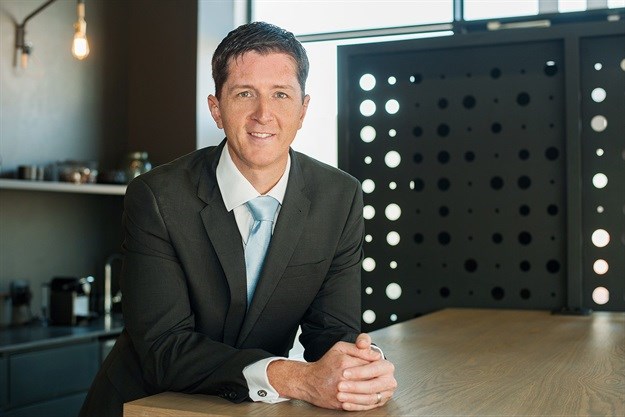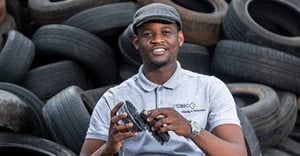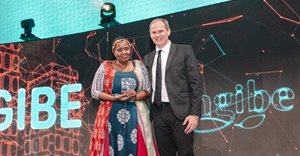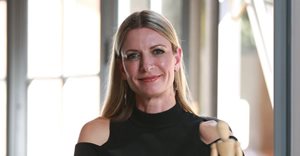
Subscribe & Follow
#EntrepreneurMonth: Want to be a property entrepreneur? Be prepared to step outside your comfort zone
We interviewed Gavin to find out more about how he started out in the property game, what it takes to become a successful property entrepreneur, and what he believes, facing current technological disruption, the future of the property sector will look like.

How did your journey in the property sector start out, would you say it was a calling?
No. In fact, I grew up thinking that I would never get into property. I didn’t want to just do what my parents did, I wanted to forge my own way. But after returning from London, I settled in Cape Town and joined the RE/MAX of Southern Africa head office as a business consultant. After spending two years travelling the country assisting RE/MAX franchise owners, I began to get frustrated with employment and my own slow rate of growth in terms of personal wealth. I was also seeing the opportunities in the property market for business owners.
In 2006, my father decided to leave his property business and go into a coaching business, and called me up to offer me the chance to buy in (I was his exit strategy) as a controlling shareholder. I took the opportunity because I wanted to control the pace of my own growth, and I believed I had learned enough about how to run a successful real estate office.
You have a number of achievements under your belt, to what would you ascribe your success as an entrepreneur?
I believe three factors have contributed the most:
Coaching. I have always invested in business coaching and it has played a major role in my development as a business leader. Entrepreneurship is lonely, and your success or failure can often rest on a few key decisions, whether it be in terms of the strategy or direction you move your business, or in how you treat your staff. To have had experienced business coaches on call at all times has been massive in terms of my growth.
Personal development. When I started off, I was very insecure about my own abilities. Despite my success at a corporate level, my biggest fear was that the business that my parents had grown would decline under my leadership. I also doubted whether or not my lack of experience in home sales would play against me in terms of recruiting and retaining top sales professionals. I realised that the only thing I could change was myself – and I overcame a lot of these insecurities by making the decision to become an aggressive learner. The more I invested in my own personal growth, the more I grew in confidence and, still today, I invest a lot of time into learning.
Give first. I’m a firm believer that what you give out in life, comes back to you tenfold. I’m not driven by profits and bottom line figures. I’m aware of the bottom line, but I see that number more as a result of how much I’ve given to others in terms of the value I add, the mentoring and coaching I give, the support structures I have for my teams, and the community that I support.
Do you think anyone can be an entrepreneur or is it something you're born to do?
I think you could argue a strong case for both, but I truly believe that anybody can do anything that they set their mind to. Most people hold themselves back due to conditioning, insecurities and pre-existing belief patterns. I was the same. I came through an education system that prepared me to be a good employee. I was told I would make a good accountant, and so that’s what I studied after school and that is the job I went looking for in London. That was my mindset. I used to believe I wasn’t a natural born entrepreneur. Until I told myself the opposite, started the process of learning, and began to form the habits I needed to form in order to change.
As an entrepreneur, how can government create a more enabling environment for an entrepreneurial culture in SA?
In my opinion, education and mentorship. Entrepreneurship is, to me, one obvious solution to our massive rates of unemployment. The challenge, however, is that entrepreneurship can be a lonely journey, therefore we can’t encourage entrepreneurship and then leave entrepreneurs out to dry given the inherent risks of being an entrepreneur. The failure rates are too high. It's one thing teaching a young entrepreneur how to start up his or her business, but then we fail to provide them with ongoing mentorship for the remainder of their entrepreneurial journey. One poor decision can be devastating. Accelerator programmes are outstanding, but can be supported with coaching and mentorship programmes to keep entrepreneurs on track during those difficult first five years.
The property sector is currently facing technological disruption with a number of digital platforms challenging the traditional real estate model. As a leader in the sector, what do you believe the future of the property sector looks like?
Great question. Our industry is being transformed by technology and has already undergone massive change over the past 10-15 years in terms of how, when and where we engage with our clients. While technology also assists agents in providing a better service to their clients, the real estate professionals have to remain relevant in terms of the value that they provide to the real estate transaction. Having said that, I do believe that because a real estate transaction involves so much emotion, for both sellers and buyers, that the professional real estate agent does still have a role to play into the future. Technology already allows buyers and sellers to transact privately, yet the statistics show that only a relatively small percentage of sales get concluded privately. Agents need to be smart in how and where they communicate their value to their sphere of influence.
What advice would you give to someone thinking of rolling their dice in the property game?
Don’t make the mistake of thinking it's easy money. If I had R100 for every time a new agent has said to me, “I love property, I’ve bought and sold before, and I love people,” as their reason for entering the industry, I’d be very wealthy right now. Yes, there is massive opportunity in real estate, but most agents do not take advantage of that opportunity. It requires a lot of hard work, long hours and sacrifice, persistence, dogged determination, and a strong resolve to handle the periods of multiple months with no income.
Be prepared to step outside your comfort zone. As with any sales position, you can’t sit within your comfort zones and expect that business will come to you. You have to make things happen for yourself – your company brand is only there to support you – your success will come from how much you are prepared to stand out, brand yourself, make yourself visible in your market place, and go above and beyond for your clients.
Approach real estate with the mindset of an entrepreneur. You can't think of yourself as an employee – you are not swapping your time for money at all. If you can bring good entrepreneurial or business skills to your real estate career, you will be very well rewarded.
















